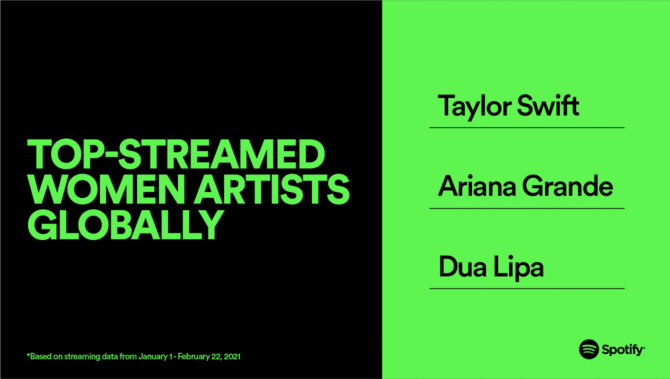DUBAI: Spotify, which started as a small startup in Sweden, is now a leading audio streaming company across 178 markets.
The company recently posted financial results for the first quarter of this year, revealing that its monthly active users had grown by 24 percent year-on-year (YOY) to 356 million.
Audiences’ appetite for premium content had also grown as reflected in a 21 percent YOY growth in premium subscribers.
However, Claudius Boller, Spotify’s managing director for the Middle East and Africa (MEA) region, told Arab News that the upsurge was not just about an increase in the number of users.
“It’s very much across the parameters of discoverability, experience, and engagement, and we are truly leading on the engagement side,” he said.
Spotify’s integration with more than 2,000 types of software and devices, including Google Maps and PlayStation, had also played a significant role in increasing user engagement, he added.
For example, engagement on Spotify via PlayStation was particularly high in the MENA region, with gamers using the app to “customize and localize their gaming experience with Arabic music.”
READ MORE
Marking the next chapter of its program in the Middle East region, Spotify collaborated with Jordanian viral sensation Issam Al-Najjar as its latest RADAR artist in the MENA region. More here.
Boller said: “These trends encourage us to double down on our investments and our commitment to the region and to further localize on a country-by-country basis.”
But, for now, the company has no plans to open any more offices in the region and will continue to operate out of its Dubai office.
In February, Spotify launched its Work From Anywhere program, which enables employees to work full time from home or the office or a mix of the two. Boller quoted the company’s founder and CEO, Daniel Ek, as saying, “work is not a place that you go to; work is something that you do.” And for now, that work is focused on attracting and working with talent from all countries – whether from home or an office.
Working with creators has become an increasingly high priority for the platform. “We provide them (creators) with direct access to the data and put the power in their hands. So, we’re equally focused on not just the consumers, but also on the creators,” Boller added.
Spotify has been criticized for not paying artists more – especially in relation to the number of streams. On its website, the company said: “In the streaming era, fans do not pay per song, so we don’t believe a per stream rate is a meaningful number to analyze. Instead, we’re focused on maximizing the total size of the payments we are able to make to rights holders.”
The MD said: “We never pay artists directly, which also helps us to treat all creators equally.”
Up to last year, Spotify had paid more than $23 billion in royalties to rights holders, including in excess of $5 billion in 2020 alone, up from $3.3 billion in 2017.
Boller reiterated the company’s commitment to supporting creators through programs such as RADAR, Sawtik, and EQUAL.
Launched in March 2020, RADAR is a global emerging artist program localized on a market-by-market basis. In the MENA region, Spotify partnered with Jordanian artist, Issam Al-Najjar, who was then promoted across billboards in the US and Canada.
READ MORE
Spotify is launching “Equal,” a global commitment dedicated to fostering equity for women in audio and celebrating their contributions. Click here for more.
The initiative is aimed “at spotlighting rising talents from around the globe” and also giving regional artists a global stage, added Boller. “This really puts young Arab talent on the global world stage of music, which is truly exciting.”
Both of Spotify’s other programs, Sawtik and EQUAL, are aimed at supporting and amplifying female talent.
Sawtik was launched in November for the MENA region, while EQUAL is a global program introduced in March.
According to a Nielsen study, 60 percent of aspiring female artists in the MENA region feel stigmatized for pursuing a career in music. Yet, 86 percent of the labels agreed that there was a demand for Arab female artists but finding them was a challenge. “We believe this needs to change,” said Boller.
Under the Sawtik program, Spotify worked with 16 young regional artists and launched a regional campaign that included female artists taking over the covers of 18 flagship playlists. It also partnered with Tunisian pop singer Latifa – a “godmother” as Boller described her – who took the young artists under her wing.
These initiatives are regarded by Spotify as a testament to its commitment not only to creators but also to the region.
While Boller did not reveal the company’s exact plans for the future, he said it was growing its team, especially on the partnerships front, and that there were “some very interesting things to come.”






























